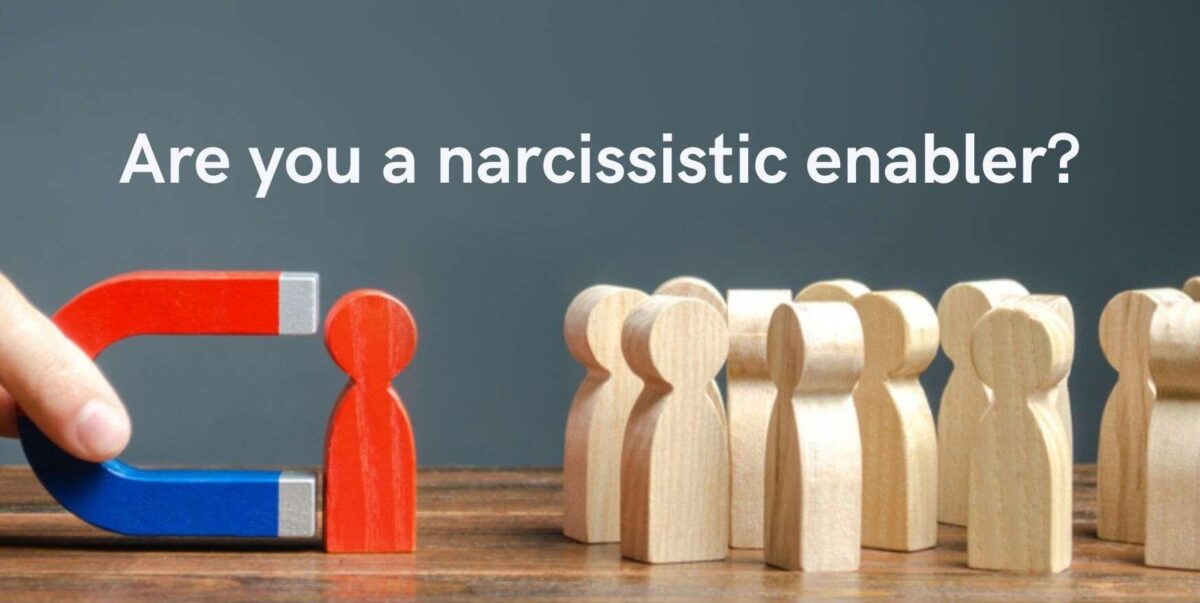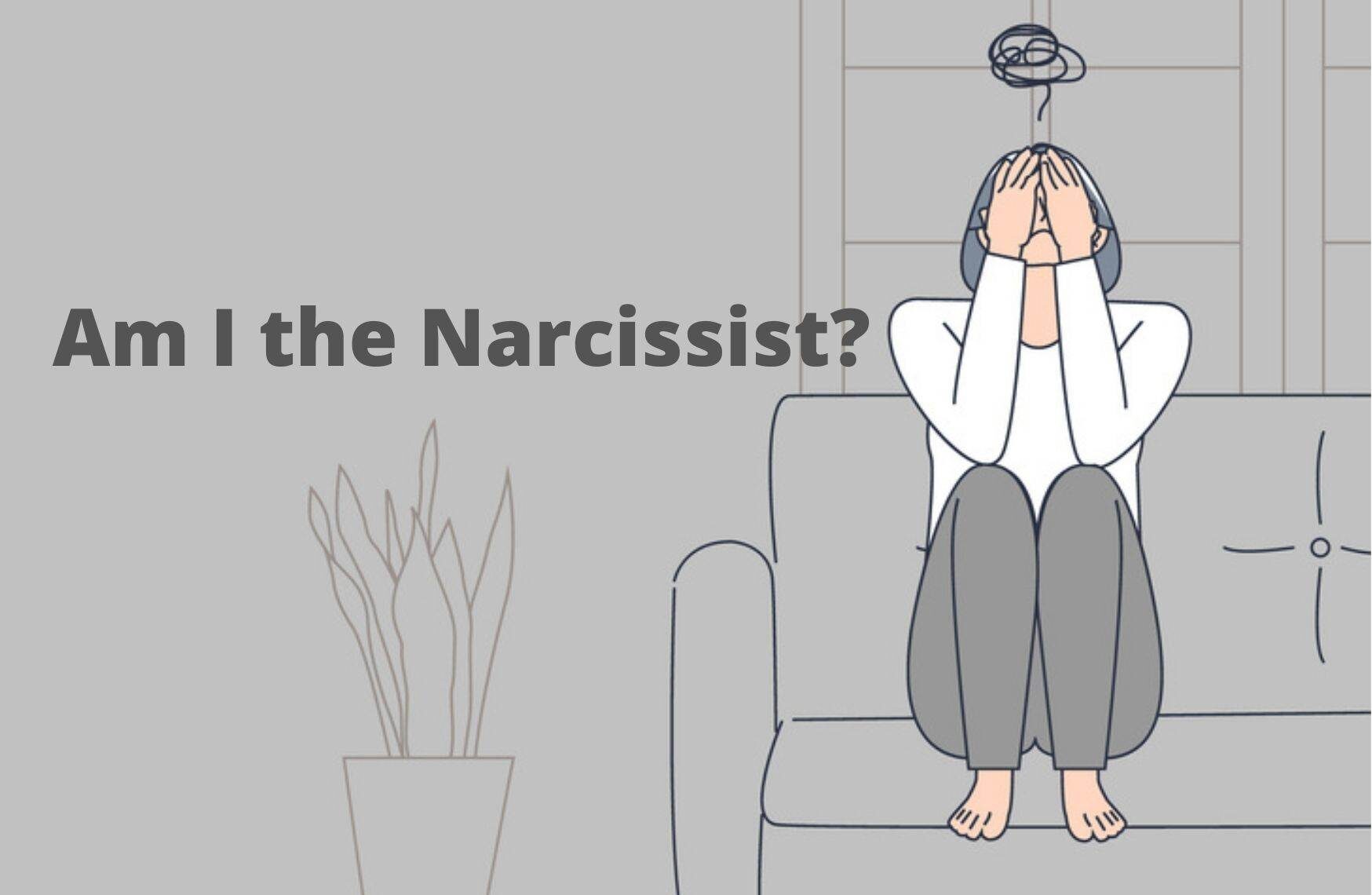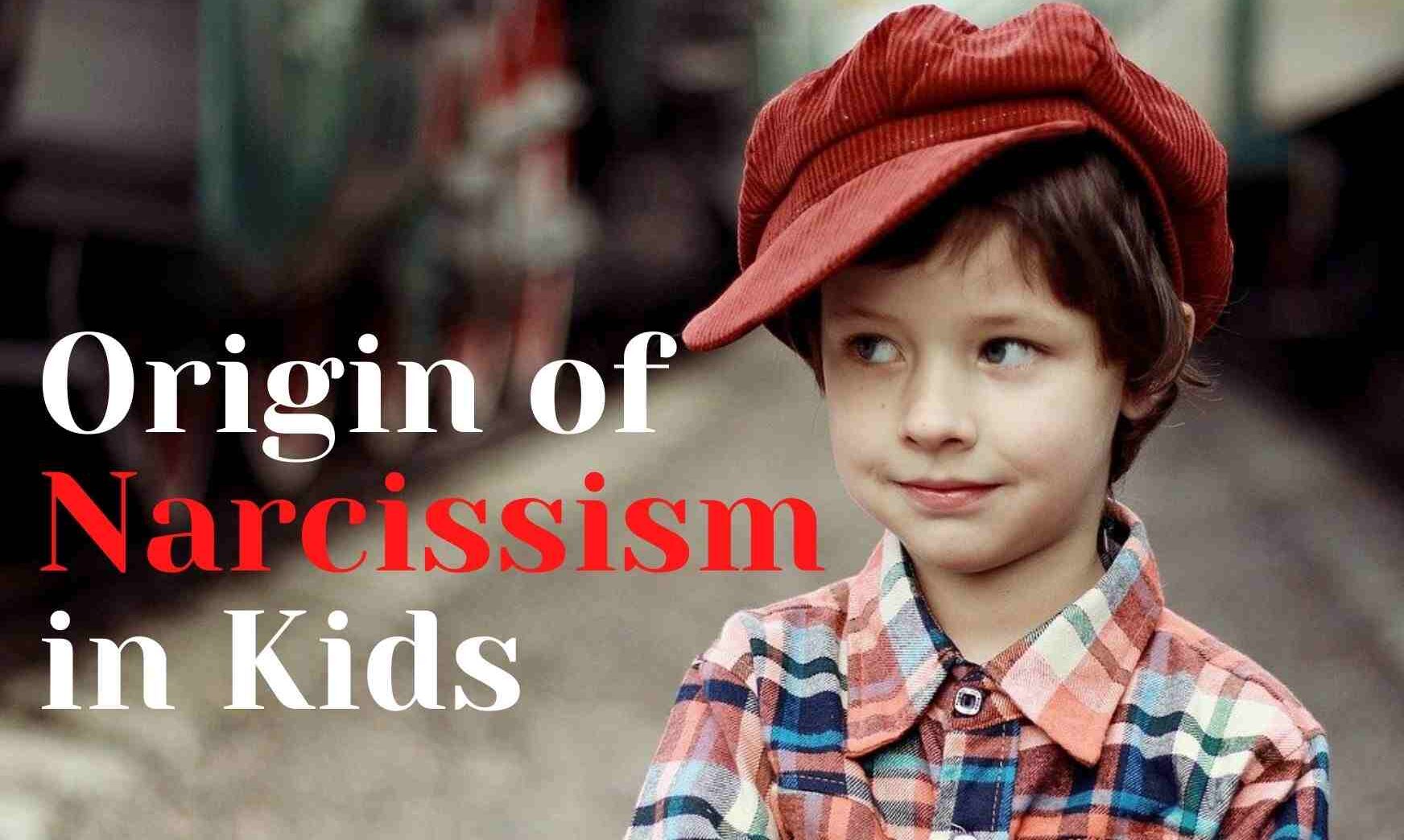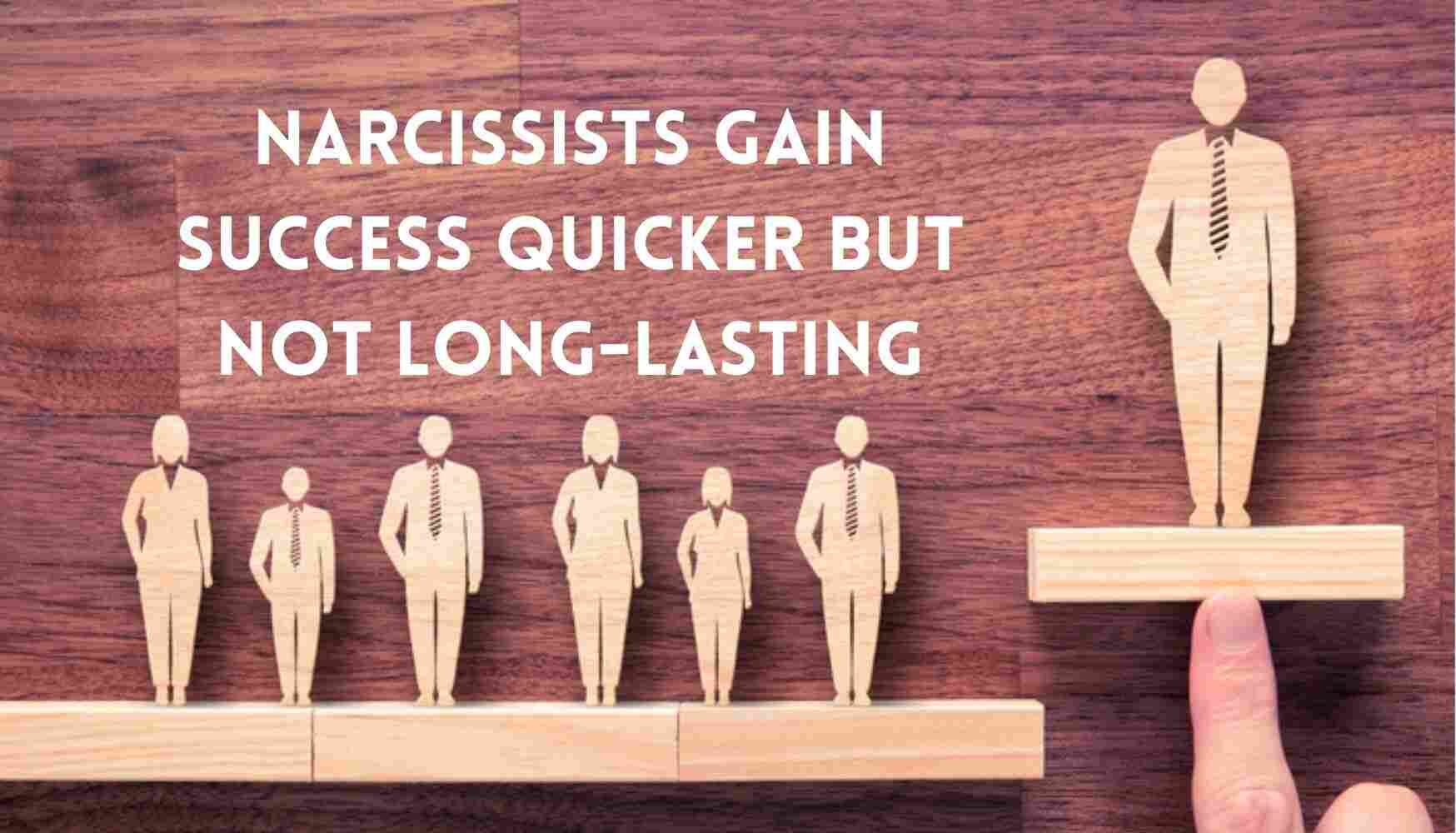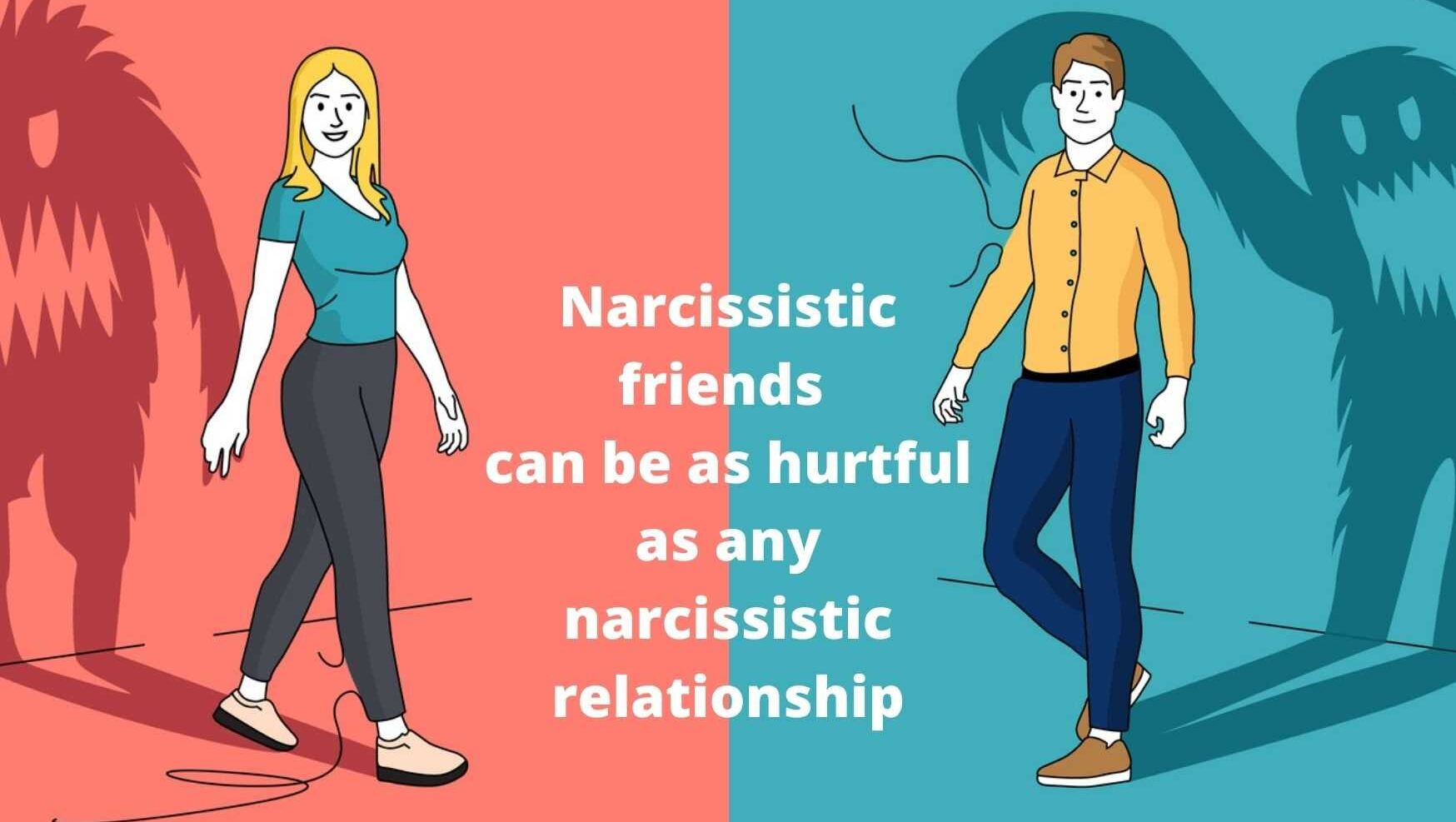
A Narcissistic Friendship is as hurtful as any Narcissistic Relationship
How does it feel like to be in a narcissistic friendship? Having a friendship with a narcissist can also be conniving, abusive, toxic, hurtful as any narcissistic relationship. When the bond gets stronger, one might experience similar abusive patterns as in other narcissistic relationships. Narcissists are self-centric with high self-esteem and an elevated sense of entitlement. To feel entitled, they seek immense validation and attention from people around them. To get a non-stop validation supply, they develop relationships with people around them and choose to play with their emotions. They follow harmful tactics from the narcissistic abusive patterns to feel the power to control others. Yes, narcissists don’t see anyone as a friend, acquaintance, partner, or family, but as a mere source of supply to fill their needs. So, if you think you are having a good friendship with a narcissist, you’re not. How can a narcissist have so many friends? Narcissists can develop friendships with many people in a short time as they have the ability to exhibit themselves as having good social skills, being attractive, and possessing similar interests with others. Although these aspects may be falsely showcased by narcissists, people find them charming and engaging at the first sight. Narcissists look more social with others, but they share personal info only if it meets their agenda. However, these friendships cannot stay longer once the narcissists’ traits come to the public’s eyes. What is a narcissistic friend? A narcissistic friend is one who possesses the narcissistic trait or is diagnosed to have a narcissistic personality disorder (NPD). He/she has malicious tactics like gaslighting, manipulating, abusive, etc., and often end up ruining the friendship. It is advised to not have a stronger friendship bond with the narcissists. How to indicate a narcissistic friend? Narcissistic friendship will be more vicious when the bond gets stronger. So, it is better to figure them out earlier. So, look out for the following traits to confirm your friend is a narcissist. They always seek attention and validation Will insult you in a group but doesn’t like to be insulted Always gossips about others’ personal life Wants to be a primary/only friend with you Won’t give up an argument until they win Doesn’t appreciate or give credit for your success Flirts with you even if they are in a relationship Always justify their action Reminds you of what they have done for you are the things you should note if you doubt that your friend is a narcissist. Who can have a friendship with narcissists? Researchers say narcissists find people with similar toxic personalities interesting to have friendships with. They are attracted to the people who are similar to them in their main personality domains. With such people, narcissists can have a friendship that goes for a long period although it is toxic enough. This case is applicable when the narcissistic friendship is moderate. When the narcissistic friendship becomes closer, it is more likely to end soon unless the victim is submissive, pleasing, and has other weak personalities. Give a Read: Types of people who stay longer with the narcissists How are narcissists hurtful in friendships? Narcissists are always jealous of others even though they have plenty of resources to be happy. They envy our credibility, ability to have a healthy relationship, and social skills with others. A narcissistic friend wants you to give all your good abilities to them with nothing in return. This is why you always feel exhausted with a narcissistic friend. As we stated before, narcissistic friendships turn hurtful when the bond becomes closer. Similar to any narcissistic relationship, a friend will also possibly undergo the abusive pattern with a narcissist. The common malicious acts a narcissist will do to you are Cuts your Friend Circle Ruin your Relationship Use you as a flying monkey tool Develop intimacy in a friendship Trap you in friends with benefits Cuts friend circle Narcissists are always conscious of not being exposed. So, they want their victims to avoid venting to others about what they are going through. When the toxic traits of the narcissist get exposed to the public, the fantasy of living entitled forever comes to an end. This is an absolute nightmare to the narcissists which leads to narcissistic rage and being more abusive towards the victim. So, narcissists always want the friends of victims out of the narcissistic bond. To do that, firstly, they compare the victim with his/her friends to make the victim feel insecure. As a result, the victim starts diminishing the friend circle and is finally cut off. Ruining relationships As stated before, narcissists envy others’ belongings. It can be an extrinsic resource, skills, personality, relationship, and whatnot. They fantasize that they are the ones who deserve to have those, else, not the victim. So, they seek to exploit the relationship by bombarding with hate comments, criticizing the relationship, spreading rumors, and even going to an extent to make the friend’s partners theirs. Narcissists are great risk-takers and that is why they go to any extent to acquire what they want. Give a Read: Risk-taking Narcissists are more successful in careers. Use as a flying monkey The right question is, how do narcissists use their friends? Narcissists are very fond of gossip and conducting smear campaigns over others. So, they use friendships as a tool to spread gossip or conduct smear campaigns to ruin the credibility of the victim. Additionally, they also use friends as a flying monkey to hoover back or gaslight the victim. As a friend, you might be not aware of being a flying monkey to the narcissist, instead, thinking that you are actually helping them. Apart from that, there are chances that the narcissist’s friend also has a toxic personality (or maybe a narcissist too). In such cases, the flying monkeys intentionally hurt or gaslight…







